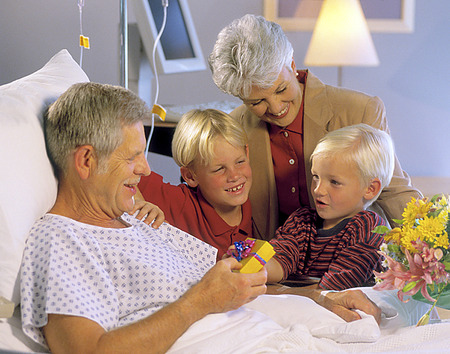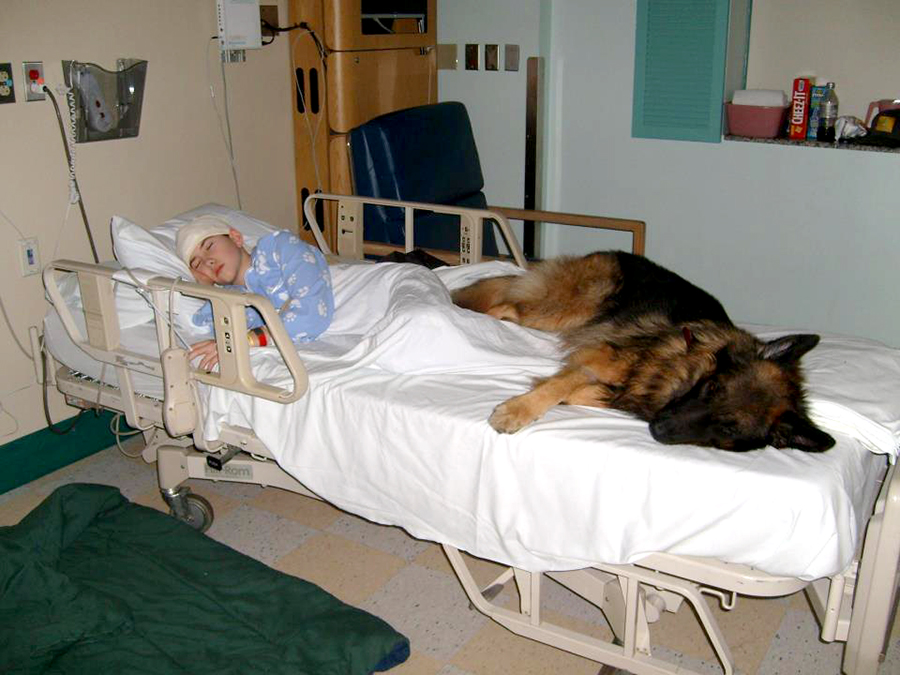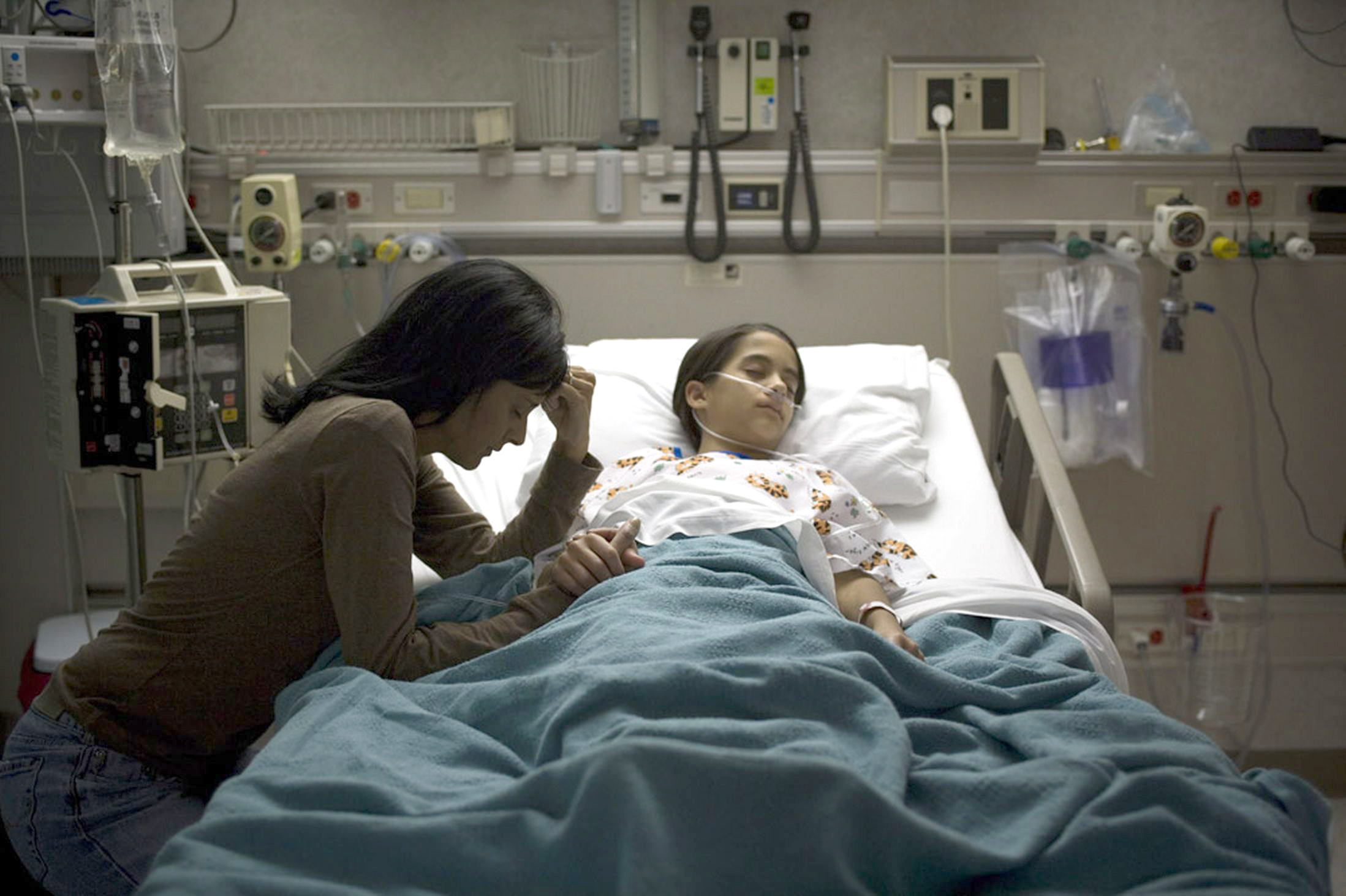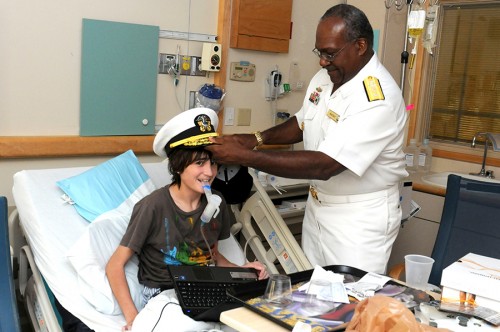Being A Friend Through Illness
I’ve already given a link to an article describing how to be a friend to someone with a baby in the NICU; but, I’m a bit between a rock and a hard place with this article.
Rear Admiral being a friend to hospitalized patient
The rock: on this site I don’t link to websites which are full of advertising, especially those I don’t endorse; the hard place: I found a blog with content which handles a sensitive issue well and is worth knowing.
Instead of just doing a “link post” like I wanted to do, the only thing I can think of is to take the time to summarize the topic myself and let you know that inspiration for this comes from a “mommy blog” called Heartwaves by Meagan Clanahan – among several others.
Ms. Clanahan has a child with congenital heart disease and as such has been through many parental “crises” including bouts of hospitalizations and surgeries. She has been sensitive to well-meaning friends trying to be thoughtful and sometimes noticed their feelings of awkwardness trying to find the right words to convey their feelings.
She is not unique in this. Those of us at an age to have had many friends go through things of this nature also recognize that parents of ill babies or children may be struggling with their own “demons” and be – how should we say it – a “bit sensitive” to topics, situations and offerings.
But, what does one say or do? How does one communicate how much you feel for the pain they surely must be going through? How does one commiserate when you may not know all the facts and definitely don’t want to make them reiterate all over again just because you don’t know?
Advice from a parent going through “it”
There are other blog articles written on the subject besides Ms. Clanahan’s but hers was available and serves to illustrate the point for “us” looking “in” – without “us” actually being “in” ourselves.
From our “outside looking in” vantage point, some of her opinions may appear a bit “touchy” and I guess that’s the point. One doesn’t know all the “hot buttons” to avoid; so, a true friend will proceed anyway, avoid those they can, back off as needed but always “be there.”
A friend will acknowledge the situation
 Grandma brought grandchildren to visit grandpa
Grandma brought grandchildren to visit grandpaIf you feel awkward the easiest thing to do is to do nothing and say nothing. Or, I suppose these days, send an email.
If you take the “chicken” way out you then can’t expect to pretend everything is the same when next you see them. They may be more polite than you’ve been and allow you to do it; but, you will have missed the chance for a shared experience which would have marked you as a true friend.
For them it may be difficult to converse with a “friend” who hasn’t at least acknowledged what they are or have been through; so, gird up your loins and make contact – it won’t be as difficult as you might think.
Ms. Clanahan suggests: “some encouraging comment like ‘I’m sorry to hear about…,’ or ‘You have been on my mind and in my prayers so much,’ or ‘My love and support is with you,’ or just a simple ‘We love ya’ is great too.
A follow-up greeting card or gift is usually gratefully received and would be the minimum if there were compelling reasons prohibiting personal contact.
A friend should actually “try” to imagine.
Ms. Clanahan freely admits that a “pet peeve” of hers is someone who says: “I can’t imagine what you must be going through.” She says that it makes her feel “isolated and alone” instead of supported.
While it’s obviously a “hot point” for her, I can see how she could feel that way. Showing empathy is a common trait of a friend which means that we are feeling some of their situation with them.
She suggests that friends at least “try to imagine and think about what would make you feel supported and less alone. At least something like: ‘We are here for you. You are not alone in this. We will support you through this.'”
A friend should give without being asked
 Through thick and thin, mans best friend
Through thick and thin, mans best friendYou should realize that a mere offer of help or assistance is nothing more than phatic communication – the complete opposite of how you should be talking to a friend.
We don’t really expect a person going through a crisis to take us up on: “let me know what I can do to help” or “call if you need anything”, do we? That’s still making them ask you for a favor.
What would be the problem with: “what can I do for you?” or “what do you need me to do?” Or, even better, “let me take the kids this afternoon so you can get some rest,” “I’ll swing by this evening and mow your lawn,” “I’m making tacos tonight, I’ll bring you some. When do you like to eat?”
Do you get the idea? Being assertive without being pushy is what you want. And you definitely don’t want to box them into needing to deal with your own “agenda” in addition to what they are going through (i.e. bringing them a pie that they need to bake, etc.)
Regarding food. The courteous thing to do is to let them know what you’ve in mind to bring. Bringing a meal full of carbs and sweets is NOT in the best interest of all people, especially diabetics. “Let me bring dinner for you on Friday, what is your favorite food?” And, if you know others are bringing in food, it’s best to stay away from casseroles unless requested – you’ve got to figure that the other people are bringing those in.
Clanahan suggests: “if all else fails, drop a basket of fruit and baked goods by with an encouraging note. Surely someone will eat them and an encouraging note is always welcome. I am putting emphasis on an encouraging note – write something that will make the person feel loved, supported, and encouraged.”
A friend should help with chores
If you have gone through even the smallest crisis yourself you will completely understand just how devastating some of the most tiny “chores” can be on top of your crisis. Running errands, picking up prescriptions, making the kids lunches, mowing or weeding the lawn and garden; things that are nearly meaningless any other time.
Scraping the driveway from snow, mowing the lawn, washing the car, caring for pets – there are hundreds of chores that only a “friend” can tell that needs doing and often can do without even asking permission. What a gift!
Waiting with a relative during the persons surgery, getting other family members ready and off for school on surgery day, showing up with obviously needed things but not staying to be a burden, giving rides to those without transportation all take comparatively little effort to you but remove “mountains” of burden to those in crisis.
You don’t have to be invasive, just check in on your friend periodically letting them know you love them and are there for them. You can ask if they want to get together and talk. If they don’t take you up on that, fine… at least they know you are there and they are not alone.
 Mother alone in ICU with sick child
Mother alone in ICU with sick childAnd, it should go without saying: If you say you’re going to do something – do it! They will most likely be depending on it and why would you want to add the additional burden on them of wondering what happened to you?
A friend should show admiration
Wow, if you don’t already have great admiration for how your friend is coping with their illness or issue it means that you probably haven’t yet had any yourself.
Keeping in mind that you aren’t able to “fix” most illnesses makes it easier to focus on what you can do: make their burden easier to bear. The term “I couldn’t do that” (i.e. the back-door approach to making them feel “better” than you) at very least doesn’t help much and at worse can alienate them. The fact is: you COULD do it; just like they are doing it because they have to and don’t have a choice.
Clanahan offers advice to say things like: “We are so proud of you for what you have done for your child,” “What a lucky boy to have such supportive parents” or “We are here to support you as you care for your child.”
A friend is judicious with advice and experiences
A thing that Ms. Clanahan alludes to but doesn’t address directly is the common tendency most friends have to give advice, share experiences or use clichés. I mention the topic because it’s the one where there is the greatest risk of touching an unintended “hot spot” for your friend.
As an example: saying “God is in control” could, through the tear-filled ears of a parent fearing the death of their child, transform into “God wants my child to die.”
Advising: “Everything will be ok,” “God is in control,” “This is all for a reason,” etc. may well be true and it may be appropriate in some settings; but, if you don’t want to be tap-dancing through the conversation, it’s best not to think you can “fix” their unhappiness and stick to supporting them through it.
If you can show empathy, it most likely means that you’ve had your trials and crises’ too. Showing your sadness and concern validates their feelings and lets them know you don’t expect them to “put on a front” of happiness; then, getting on with helping them through it shows them they’re not traveling the road alone but that they don’t need to grieve for you too in addition to their loved one.
Just as clichés are often not helpful, jokes or attempts to cheer them up are almost never received well and nearly always backfire. Remember, a friends job is not to fix things they can’t; it’s to help them get through it. THAT, will be what brings a grateful smile to their hearts in quite moments, usually late at night when they are alone.
Lastly, “comparing scars” is only helpful in the movies – if even then. A friend wouldn’t compare or belittle their loss. Comparison is the thief of joy, and when you belittle someone’s loss it can be truly hurtful.
Comparing your experience to the one your friend is going through does NOT help them or make them feel better. Are you saying: “yours is not so bad compared to mine?” Of course not. Just best to leave the description of your own troubles to some other time and place.
Advertisement by Google
(sorry, only few pages have ads)

